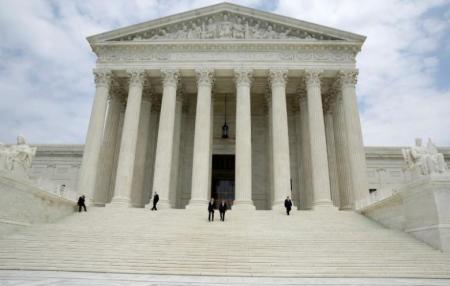Supreme Court to hear first abortion case since Kavanaugh, Gorsuch confirmations

To the delight of pro-life advocates, the U.S. Supreme Court announced Friday it will consider a challenge to a Republican-backed Louisiana law requiring doctors who perform abortions to have admitting privileges at a nearby hospital.
The nation’s high court granted a petition for certiorari filed by the Center for Reproductive Rights on behalf of an abortion clinic and two abortionists in the case of June Medical Services v. Gee.
The Center for Reproductive Rights contends that the Louisiana law — adopted in 2014 — would close every abortion clinic in the state except for one. The law has been blocked since its enactment.
This marks the first abortion-related case to be argued before the Supreme Court since the confirmations of Justices Brett Kavanaugh and Neil Gorsuch, both of whom were nominated by President Donald Trump and have given the court a conservative majority.
Earlier this year, the Supreme Court voted 5-4 to block the Louisiana law from going into effect until the case could be adjudicated. Chief Justice John Roberts joined the court’s four liberal justices in the majority, while Kavanaugh wrote in dissent.
In 2016, an eight-member Supreme Court struck down provisions of a similar Texas law. In a 5-3 decision, the court concluded that legal demands for abortion providers to have hospital admitting privileges and for abortion clinics to be regulated as surgical centers were an “undue burden” to a woman’s right to an abortion.
“Louisiana is openly defying the Supreme Court’s decision from just three years ago, in which they found an identical Texas law unconstitutional,” Center for Reproductive Rights President Nancy Northup said in a statement. “We are counting on the court to follow its precedent, otherwise, clinics will needlessly close and there will be just one doctor left in the entire state to provide abortion care.”
The intent of the Louisiana law is to ensure that abortionists meet the medical qualifications necessary to admit a patient from an abortion clinic to a hospital within 30 miles when emergencies arise. A study from 2018 suggests that an average of 5,500 women are sent to emergency rooms every year in the U.S. due to complications related to abortion procedures.
Despite the Supreme Court’s ruling in the Texas case, Louisiana contends that because the law leaves abortion clinics open in major population centers, it does not create an “undue burden” on abortion access.
Catherine Gleen Foster, president of America’s oldest pro-life legal organization Americans United for Life, said in a statement that she “welcomes” the Supreme Court’s decision to take up the case.
“Louisiana’s long and sordid history of dirty and dangerous abortion businesses being shuttered one by one in order to protect women from fly-by-night and dangerous abortionists should tell the court all it needs to know, both about the legal benefits of this law and the dubious right of abortionists to sue to overturn laws designed to protect their own patients,” Foster stressed.
The pro-life legal group The Justice Foundation said in a statement that it plans to file an amicus brief asking the Supreme Court to use the June Medical Services case to overturn the Supreme Court’s 1973 landmark decision in Roe v. Wade making abortion a national right.
“Over a quarter of a million Americans have signed The Moral Outcry Petition calling on the court to reverse Roe and Doe under the Law of Judicial Precedent,” a statement from The Justice Foundation reads. “Reversing these decisions would make America, including American women who do not want to take care of a child for any reason, better off. Now is the time to end the tragedy of abortion in America.”
Jeanne Mancini, president of March for Life, said in a statement that abortion activists are “more than willing to lower the bar on women’s health in order to expand abortion.”
“[S]tricter clinic regulations are in the best interest of women,” she said in a statement. “Just recently we were reminded of the need for more oversight when it comes to abortion, not less, with the appalling case of abortionist Ulrich Klopfer who collected thousands of aborted babies’ bodies in his home. We applaud the Louisiana bill’s sponsor Katrina Jackson as well as its other supporters for taking concrete steps to protect women in that state.”
Because of the conservative majority on the court, some of the left fear what could happen as a result of the Supreme Court taking up the Louisiana case.
“This term, with Kavanaugh’s vote, the Supreme Court is going to overrule Whole Woman’s Health [Texas case], gut Roe v. Wade, and allow states to regulate abortion clinics out of existence,” tweeted Slate writer Mark Joseph Stern.
Vox correspondent Ian Millhiser opined: “Brett Kavanaugh now has the case he needs to gut the right to an abortion,” in a tweet criticizing pro-life voters.
Before the court’s announcement that it will take up the case, prominent abortion-rights lobbying organization NARAL tweeted that taking up the case “would allow [Supreme Court] to gut Roe v. Wade.”
“This is NOT a drill: The constitutional right to abortion is hanging in the balance,” NARAL’s tweet reads.
Follow Samuel Smith on Twitter: @IamSamSmith
or Facebook: SamuelSmithCP





















